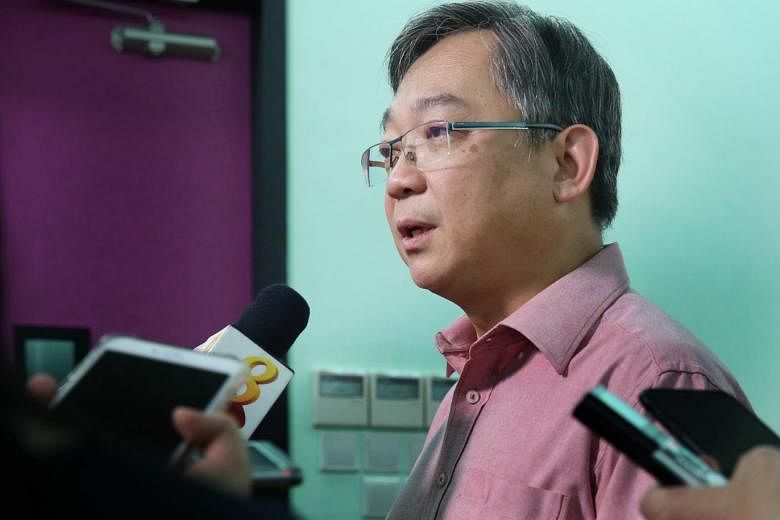SINGAPORE - In the future, patients who are unwell could be chatting with software that is able to assess their condition and advise them to visit the right hospital or clinic.
Such chatbots, which require patients to only type in basic information such as their symptoms and medical history, can even prioritise seriously ill patients and cut their waiting times in hospitals.
By the end of 2018, a list of chatbot technology providers will be made available to healthcare professionals, Singapore's healthtech agency Integrated Health Information Systems (IHiS) said on Tuesday (July 17).
Both parties could then work together to develop and improve the chatbot, which will then be rolled out to public healthcare institutions, IHiS added.
The agency said that technology such as this will allow healthcare providers to direct their attention to patients who are most in need of their care.
The announcement was made during the 10th edition of the annual National Health IT Summit held on Tuesday. Some 800 guests from the healthcare and technology sectors were present at the Singapore Expo to attend the summit, organised by IHiS.
Health Minister Gan Kim Yong kicked off the day-long event with a speech on such technologies in healthcare, noting that while "some are making current healthcare models better and more efficient, others have the potential to revolutionise how we receive care services to live more healthily".
He cited telemedicine, artificial intelligence (AI) and robotics as some of the other innovative technologies adapted by the healthcare sector, commending the use of smartphone apps and step-trackers in the annual National Steps Challenge.
The challenge, which encourages Singaporeans to walk more and track the number of steps they take daily, has attracted more than 670,000 participants in its current season, almost double that of the previous one.
Mr Gan also emphasised the need to transform the very core of the healthcare system instead of just tacking on technologies to current healthcare services and solutions.
He added: "While digitisation and automation of existing processes bring benefits, true transformation and quantum leaps can only happen when we go deeper to redesign processes and reinvent delivery models and concepts, with technology as an enabler."
Mr Gan also noted that the Government could do better in making more effective and impactful use of technology in healthcare, noting that one way to do this was for the public and private sectors to work more together.
One such research project that will be developed over three years is a collaboration led by the Ministry of Health (MOH) in the field of robotics.
Called the Robotics Middleware Framework for Healthcare, it will enable various complex healthcare technology systems to talk and work with one another other, reducing the workload of healthcare professionals, said Mr Gan.
At the event, the 13 winners of the National IT Excellence Awards were also announced. The awards are an annual accolade conferred by MOH to recognise and celebrate health technology innovations that have improved patient care and general healthcare here.
A new platform launched to bring healthcare, research, technology and education professionals together was also featured for the first time in the summit.
Called the National HealthTech Challenge, the platform allowed professionals to put their heads together to come up with tech-based solutions to address national healthcare challenges such as an ageing population, a rise in chronic diseases and a shrinking workforce.
The prototypes from the best 20 teams of the challenge were on display at the summit, including an automated medicine dispensing kiosk which can reduce delays in treatment of ailments, and an AI system that can predict the risk of cancer relapse.
These teams will have access to funding by agencies such as IHiS to develop their solutions and may even have them adopted by public healthcare organisations.

